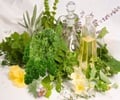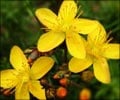America research reveals that two thirds of those who take herbal supplements, do not check scientific guidelines before doing so. In other words, those using herbal medicines to ease specific ailments do so on the basis of blind faith and do not care to check the credentials of purported claims or seek evidence –based results.
The researchers led by Aditya Bardia of University of Iowa viewed extensive data from a 2002 national health survey of more than 30,000 U.S. adults.In the survey, more than 3,300 adults said they had taken herbs to treat a specific health condition.
The researchers focused on 609 people who reported treating a specific health condition with any of 10 herbal supplements. Five supplements evaluated were garlic (high cholesterol level), ginseng (diabetes), kava-kava (anxiety), soy (high cholesterol, source of protein, hot flashes), and St. John's Wort (depression).
Bardia's team checked to see if there was scientific evidence supporting the use of those herbal supplements for the participants' health conditions.
It was seen that the percentage of participants using herbal supplements in accordance with scientific evidence ranged from 68 percent for echinacea to 3 percent for ginseng.
Apart from echinacea and ginseng, only about one-third of the participants used herbal supplements based on scientific evidence, the study showed.
Advertisement
Bardia and colleagues also note that part of the problem could be that many patients and doctors do not talk about herbal supplements. This, according to the researchers, should change.
Advertisement
In conclusion, the authors stress that physicians should ask patients about their use of herbs at every visit and admission to hospital, and inform patients about potential benefits and harm.
Source-Medindia
ANN/B








